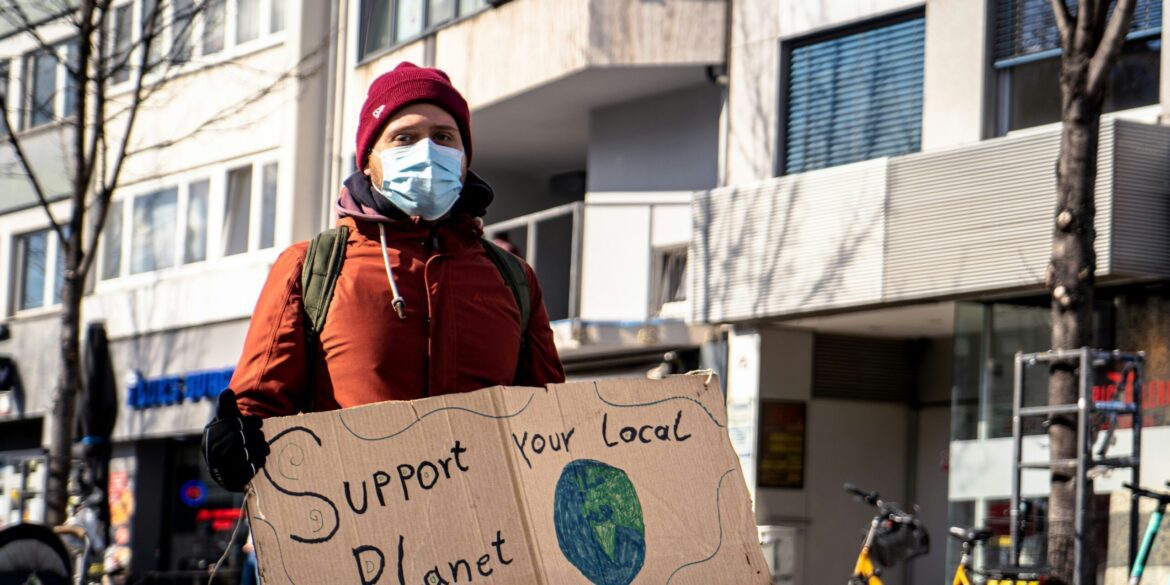BALTIMORE, MD — On June 20, 2025, the United Church of Christ’s General Assembly in Baltimore featured a pivotal event in the growing climate justice movement: the UU Climate Justice Revival. Drawing faith leaders, grassroots organizers, and policy advocates from across the nation, the revival emphasized the intersection of environmental responsibility and social equity. Held at the Baltimore Convention Center and streamed virtually to a broader audience, the event spotlighted the need for climate solutions that prioritize justice as much as sustainability.
The revival came at a time of growing awareness that marginalized communities—particularly communities of color, low-income neighborhoods, and Indigenous populations—face the worst consequences of climate change. From extreme weather events to rising utility bills and forced displacement, these communities often lack the resources to adapt, despite having contributed the least to the problem. The conference challenged policymakers and participants alike to rethink the frameworks of climate action, shifting from a metrics-only approach to one grounded in justice and inclusion.
A series of keynote speeches and panels underscored the urgency of integrating justice into every level of climate policy. One central message emerged repeatedly: true climate resilience cannot be achieved without ensuring that those most affected are also central to decision-making. “We can no longer afford to treat equity as an afterthought,” said Rev. Susan Frederick-Gray, one of the keynote speakers. “It must be the cornerstone of our environmental vision.”
Attendees called for specific policy reforms, including increased federal investment in community-led energy projects, expanded protections for climate migrants, and equitable access to clean energy infrastructure. Baltimore itself served as a living case study. The city has faced significant environmental challenges in recent years—from urban heat islands disproportionately affecting Black neighborhoods to air and water pollution caused by outdated industrial infrastructure. Local advocates at the conference highlighted these ongoing issues, offering both critique and a blueprint for community-led resilience.
Workshops held during the event addressed topics such as climate displacement, the ethics of environmental stewardship, and the role of faith-based organizing in legislative advocacy. In one session, policy experts explored how the Inflation Reduction Act of 2022 could be further leveraged to benefit vulnerable communities. While the act includes billions in climate-related investments, panelists argued that without oversight and deliberate equity measures, such funds may bypass the communities most in need.
Speakers also stressed the importance of community engagement throughout the climate policy process. As environmental decisions often unfold through top-down models, affected residents are frequently left out of critical conversations about land use, energy development, and disaster recovery. “Trust is built when communities are not only heard but have actual power,” said Anika Patel, a community organizer from Houston. “Climate policy must be co-created with those who live the reality every day.”
The forum also emphasized the influential role of religious institutions. For many faith leaders, climate justice is not just a political issue—it’s a moral one. Through sermons, congregational activism, and partnerships with environmental coalitions, churches, synagogues, and mosques have increasingly become vital players in pushing for ethical climate reforms. Several speakers noted the potential of interfaith coalitions to bridge ideological divides and foster collective action rooted in shared values.
One unique aspect of the Climate Justice Revival was its spiritual framing. Music, prayer, and storytelling were woven throughout the event, offering a powerful counterpoint to the often data-heavy discourse of climate policy. This spiritual grounding helped attendees reflect not only on environmental systems but also on the deeper moral and relational fabric that sustains human communities.
Attendees left the event energized and equipped with new tools for local advocacy. Organizers distributed resource packets containing policy toolkits, lobbying guides, and templates for community meetings. The goal: to turn inspiration into sustained action at both local and national levels.
The revival’s timing was also significant. Just days earlier, new climate data from NOAA confirmed that 2024 was the hottest year on record globally, with record-breaking temperatures across the U.S. southwest, southeast, and Gulf Coast. The increasing frequency of climate disasters has brought renewed scrutiny to how federal and state agencies prepare for and respond to crises—particularly in under-resourced communities.
Environmental justice advocates have long argued that any climate solution failing to address structural inequalities is ultimately unsustainable. As speaker after speaker reminded the audience, reducing emissions is only part of the solution. What matters just as much is how those reductions are achieved—and who benefits from the resulting policies.
The UU Climate Justice Revival in Baltimore was not a conclusion but a call to action. With federal climate funding at unprecedented levels and public awareness growing, advocates believe the moment is ripe for embedding equity into the heart of environmental policy. “We cannot afford another decade of performative progress,” said Rev. Jacqueline Patterson, founder of the Chisholm Legacy Project. “This is our opportunity to align our climate strategies with our highest values—justice, compassion, and shared responsibility.”
As the nation confronts the dual crises of environmental degradation and social inequality, events like the Climate Justice Revival are shaping a broader, more inclusive vision of what it means to protect the planet. The path forward, as outlined in Baltimore, will depend not only on innovation but on the courage to center justice in every decision made.

